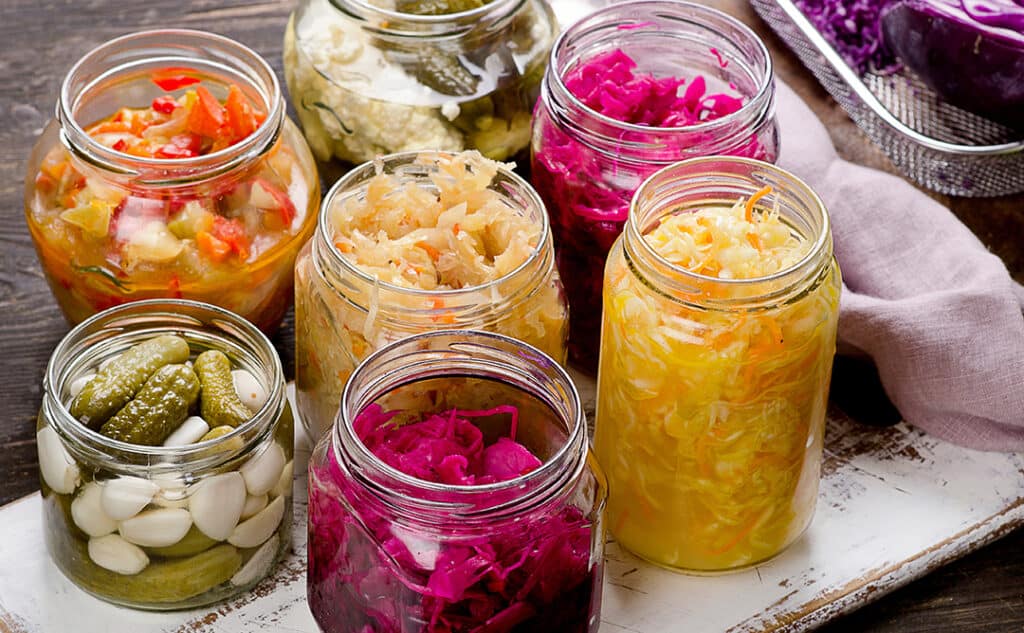Microbes have a profound effect on our well-being
There is a vast network of microbes that call your body home. We acquire these microbes throughout our lifetime by breathing, touching, and eating. Such bacteria were the only inhabitants of earth for three billion years. Their chemical reactions supported the conditions that allowed for the development of multicellular organisms and, eventually, superorganisms like us. We evolved together, symbiotically supporting each other.

These fantastic flora do many essential jobs in the body, but only recently have scientists begun to see just how much they are actually responsible for. Studies with germ-free mice (mice raised in a sterile environment with no exposure to bacteria) have shown that the gut microbes play a role on human behavior and emotions. The effects of stress on germ-free mice show that they are far less able to cope with stressful circumstances than their immunity-acquired counterparts. Additionally, those mice with minimized microbiomes are unable to solve problems the way their microbe-rich cousins can. In other words, our gut microbes can influence how we think, act and feel. And, considering how many more bacteria there are in our body than our own cells, it’s no surprise than they can have such a profound effect on our well-being.
This phenomenon is due, in part, to the fact that the majority of our “happy” and “zen” hormones, dopamine and serotonin, are synthesized in the gut with help from our microbe friends. These hormones help to regulate our emotions, which impact our decision making. In a study in California, two groups of women were presented with stressful imagery via virtual reality and asked to perform tasks to solve the issues they were presented with. Those women with more diverse microbiomes showed a more active hippocampus. The hippocampus, thought to be the emotional center of the brain as well as the holder of both short- and long-term memory, is located under the cerebral cortex in the brain. Those women with more microbes were able to problem solve more effectively and showed less stress markers (high blood pressure and increased heart rate) than those women who had less diversity in their gut flora. The diversity and density of the flora in the gut has a direct relationship with the activity of the hippocampus. In other words — the gut brain connection.
Our diets, as well as our choices of medications, cleaning products and beauty products have a dramatic impact on the health of our microbiome. The scorched earth policy that we have had when it comes to killing so-called “germs” has been that they are all bad and should be killed. Anti-bacterial soaps, body washes, and antibiotics that diminish our friendly microbes are having negative long-term effects on our health and mood. I am not saying that antibiotics or antibacterial sprays should never be used. Rather, they should be used more selectively and less universally to help preserve and protect the microbes that help us. When we do require an anti-microbial it is important that those microbes get replenished through probiotics and probiotic rich foods like yogurt, sauerkraut, kimchi and kombucha so that the microbes can recolonize and continue doing their job. This will make us all happier and healthier.
Tapp Francke Ingolia holds a Master’s Degree in Nutrition and Integrative Health. She founded STANDwellness in Water Mill nine years ago as a way to help people optimize their health.









![With a floral motif that is translated to diners through vibrant wallpapers, hanging plants, painted ceilings, and stylish light fixtures, @floa_whb employs color in a light and playful way. The menu is playful, too; with carefully curated dishes like blackberry-glazed Crescent Farm duck and a whimsical take on dessert with the so-called Flower Pot. [link in bio]](https://hamptonsrealestateshowcase.com/wp-content/uploads/sb-instagram-feed-images/481243996_18493339045030135_2338222024097750447_nfull.webp)
![Rivage Bal Harbour - where sand meets the sky. Located in the exclusive Bal Harbour neighborhood, this 275± ft. oceanfront tower reflects the beauty of its surroundings, with breathtaking views of the Atlantic Ocean and Miami Skyline. #RivageBalHarbour
Visit RivageBalHarbour.com to learn more. [link in bio]](https://hamptonsrealestateshowcase.com/wp-content/uploads/sb-instagram-feed-images/480846207_18493167388030135_9161471873241925950_nfull.webp)
![40 Ditch Plains Road offers immediate access to the world-renowned Ditch Plains beach, known for its rolling waves and endless stretches of pristine sand. This 3 bedroom, 3 bath home offers the perfect blend of comfort and style, providing ample space for you and your guests to freshen up after a day of surfing or soaking up the sun. Represented by @angelaboyerstump of @sothebysrealty. [link in bio]](https://hamptonsrealestateshowcase.com/wp-content/uploads/sb-instagram-feed-images/480033361_18493013812030135_8705914201213142976_nfull.webp)
![Designed by renowned architect Jaquelin T. Robertson, this stunning 11,000± sq. ft. estate sits on 5.5± acres with 450± ft. of frontage on Taylor Creek, complete with a boat dock. It features grand rooms, 10 bedrooms, 12.5 baths, and a 20x75 elevated pool with breathtaking water views. Represented by @haraldgrantrealestate and @brucegrantre of @sothebysrealty. [link in bio]](https://hamptonsrealestateshowcase.com/wp-content/uploads/sb-instagram-feed-images/479992734_18492832849030135_6210124399861200108_nfull.webp)
![22 Maple Street redefines opulence with the highest echelons of craftsmanship, captivating views of the Atlantic Ocean and will be delivered turn-key with custom designed interiors. This modern masterpiece offers 9,000± sq. ft. of luxury on a .92± acres with 6 bedrooms, 7.5 bathrooms, and a private roof deck pool. Represented by @braunroskoteam of @douglaselliman. [link in bio]](https://hamptonsrealestateshowcase.com/wp-content/uploads/sb-instagram-feed-images/479984230_18492624619030135_7798144118867056277_nfull.webp)

![Valentine’s Day is here! 💗🌹 If you still need the perfect bouquet, @bespokefloinc in Southampton has you covered with stunning, last-minute arrangements that are sure to impress. Don’t show up empty-handed—grab something beautiful today! 💐 [link in bio]](https://hamptonsrealestateshowcase.com/wp-content/uploads/sb-instagram-feed-images/479564029_18491854765030135_8706847686307257841_nfull.webp)
![Talo Builders presents a newly constructed, 8 bedroom, 9.5 bath masterpiece spanning 7,651± sq. ft. across three levels. Situated on a private 1.8± acre lot in the prestigious Ranger Estates of East Hampton, 11 Dering Lane features a grand foyer, spacious great room, formal dining room, and family room, all adorned with high-end finishes. Represented by @jameskpeyton and @jfrangeskos of @thecorcorangroup. [link in bio]](https://hamptonsrealestateshowcase.com/wp-content/uploads/sb-instagram-feed-images/476838961_18491679673030135_5422220981073676272_nfull.webp)
